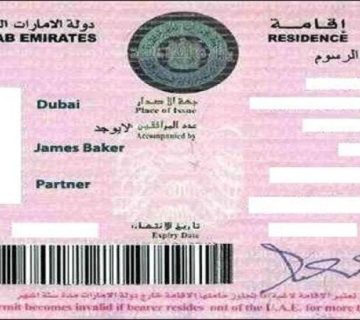Starting an import and export company is a key step toward launching a business that operates across borders, unlocking wide opportunities in both local and international markets. This venture requires strategic planning, market insight, and a solid understanding of the legal and regulatory aspects of global trade. In this article, we’ll walk you through each stage of establishing an import and export company in Abu Dhabi, from defining your business idea and selecting products to handling licensing and registration, crafting marketing strategies, and building strong relationships with suppliers and clients, with the support of Alpha Company.
What is an Import and Export Company in Abu Dhabi?
An import and export company is responsible for selling products to international markets or bringing in goods for sale within the local marketو particularly items not readily available locally. These companies typically fall into the following categories:
- Import/Export Management Company (IEMC): Partners with local sellers to identify suitable international buyers who meet market demands.
- Export Trading Company (ETC): Acts as a bridge between local suppliers and foreign buyers whose requirements align with available products.
- Import and Export Company: Independently imports goods from global markets for local sale or exports domestic products abroad, assuming full responsibility for any profits or losses incurred.
Importance of Import and Export: What Does an Import Export Company Do?
 Import and export play a vital role in boosting the economy and efficiently meeting market demands.
Import and export play a vital role in boosting the economy and efficiently meeting market demands.
Importance of Importing
Importing involves purchasing products from other countries to supply to local consumers. This is typically carried out by import companies that must obtain an import license. Key benefits include:
- Introducing new and diverse products to the local market.
- Reducing the cost of local goods by offering competitive alternatives.
- Ensuring access to high-quality products that meet consumer needs.
Importance of Exporting
Exporting focuses on selling domestic products in international markets, offering advantages such as:
- Expanding sales by entering new global markets.
- Increasing profitability through broader business operations.
Benefits of Import and Export Companies with Alpha in Abu Dhabi

Establishing an import and export company offers numerous advantages that drive business success and economic growth. Here are the key benefits companies gain through this type of business:
- Increased Revenue: Import and export operations are a major source of revenue growth. By engaging with global markets and expanding their customer base abroad, companies can significantly boost their profits.
- Strengthening the National Economy: Import/export companies contribute to the national economy by increasing international trade volume, enhancing exports, attracting foreign investments, and ultimately supporting economic growth.
- Global Expansion Opportunities: Owning an import/export company opens doors to international markets. This enables businesses to scale beyond local boundaries, improve their competitive edge, and reach a broader customer base.
- Enhancing Economic Relations: Establishing such companies helps foster stronger economic ties between countries. It facilitates international cooperation in trade and investment, improving bilateral relations and growth opportunities.
- Knowledge and Technology Exchange: Working with international partners encourages knowledge exchange and advanced technologies. This fosters innovation, enhances productivity, and supports local industry development.
Starting an import and export company accelerates business growth and revenue generation. Understanding how to start an import export business is key to strengthening global competitiveness and enhancing economic collaboration.
Key Steps to Establish an Import and Export Company in Abu Dhabi

Many entrepreneurs seek to establish import and export companies in Abu Dhabi due to its attractive investment environment and strong support for international trade. Below are the most important steps:
-
Market Research and Business Planning
Before launching the business, conduct a comprehensive feasibility study to analyze the target market, identify its needs, and evaluate available opportunities. Choose products or services with high demand in the chosen markets.
-
Determine the Company Type
Selecting the company type is crucial. Decide whether it will be locally owned or fully foreign-owned. You’ll also need to define business activities and choose the legal structure. Company types vary based on purpose and scale.
- Sole Proprietorship: Owned by one individual who assumes full responsibility for liabilities and debts, even with personal funds. Suitable for small to medium-sized enterprises.
- Partnerships: Based on mutual trust among partners. Includes:
-
-
- General Partnership: Partners have unlimited liability and are personally responsible for the company’s obligations.
- Limited Partnership: Includes general partners with full liability and limited partners whose liability is restricted to their contributions.
- Silent Partnership: An unregistered agreement among partners to share profits and losses without forming a legal entity.
-
- Corporations (Capital Companies)
Ideal for large-scale projects. Includes:
- Joint-Stock Companies: Capital is divided into shares, and shareholder liability is limited to their share value.
- Partnership Limited by Shares: Combines general partners and shareholders.
- Limited Liability Companies (LLC): Consists of two or more partners with liability limited to their capital contributions.
-
Securing Capital (Financing)
Ensure adequate funding to launch and sustain your business, whether through personal savings, partners, investors, or bank loans. Accurately estimate the capital required to maintain smooth operations without interruptions.
-
Define Business Activity
Decide whether you will act as a producer or exporter. It is advisable not to limit yourself to a single product, as offering a variety of goods increases flexibility and better meets customer needs while minimizing high production costs.
-
Establish Company Identity
Select an international name that aligns with your business activity and appeals across different cultures. Research similar names to avoid duplication or legal issues. Ensure the name is broad enough to allow for future business expansion beyond a specific product.
-
Prepare Official Documents
- Commercial Registration: A fundamental requirement for legal operations.
- Tax Card: Issued based on the company’s registered address.
-
Open a Business Bank Account
Provide official documents such as the commercial registration, tax card, and ID. This account is essential for conducting financial transactions legally and efficiently within your business activities.
-
Obtain Business License and Legal Registration
Register your company with the relevant authorities in your country. Choose a legal structure that aligns with your business model and ensure your trade name is unique. Secure all necessary licenses to operate legally.
-
Identify Target International Markets
Determine the countries you aim to import from or export to, based on market demand and product cost to ensure competitiveness. Focus on markets that offer favorable export conditions and profitable pricing.
-
Select Suppliers and Clients
Find reliable suppliers for your imports and identify potential buyers for your exports. Establishing contact with an importer is key to building strong business relationships, negotiating favorable terms, and formalizing agreements through clear contracts.
-
Develop Infrastructure
Set up the necessary infrastructure, including warehouses, inventory management systems, and logistics. Partner with shipping and customs clearance companies to ensure efficient and timely product delivery.
-
International Marketing and Promotion
Apply global marketing strategies to enter new markets. Use social media, online advertising, and a professional website to promote your products and services to an international audience.
With thorough planning and the right partners, your import and export company can achieve long-term success in global markets.
Key Services Offered by Alpha for Establishing an Import and Export Company
Comprehensive Company Formation in Abu Dhabi
Alpha simplifies the entire setup process, guiding clients through every step in a business-friendly environment full of opportunities.
Complete Legal and Administrative Handling
The team manages all matters related to immigration, labor, and administrative procedures with full professionalism, ensuring a hassle-free experience.
Business Sustainability and Goal Achievement
Alpha focuses on long-term business continuity, helping clients build sustainable operations that align with their strategic goals.
Integrated Health Insurance Solutions
Turning challenges into opportunities, Alpha offers tailored health insurance services that improve employee satisfaction and healthcare quality.
Immigration and Residency Services
From issuing residency permits to Emirates ID processing, Alpha handles all formalities, allowing clients to concentrate on growing their business.
Full HR and Administrative Support
Alpha provides complete support in human resources and administrative tasks, empowering business owners to stay focused on their core objectives.
Why Start an Import and Export Business in Abu Dhabi?
In recent years, the import and export industry has experienced remarkable growth, driven by the continuous cross-border exchange of goods and services. Abu Dhabi offers a strategic gateway for global trade, accommodating businesses of all sizes and sectors. Each type of import/export company has its own unique characteristics and requirements, making the city a highly attractive hub for aspiring entrepreneurs and international business expansion.
Requirements for Establishing an Import/Export Company with Alpha in Abu Dhabi

- Financial Planning: Allocate a clear budget covering setup, equipment, shipping, distribution, salaries, and operational expenses.
- Strategic Location: Choose a location near ports, airports, or major transport networks to streamline logistics.
- Legal Documentation: Prepare all necessary documents, including commercial registration, trade license, and activity-specific permits.
- Company Name: Select a distinctive and market-appropriate name that reflects your business nature and is easily pronounced across cultures.
- Administrative Structure: Establish a clear organizational hierarchy with defined roles and responsibilities, and hire qualified personnel for each function.
- Technical and Operational Readiness: Invest in modern infrastructure, including storage facilities and shipping systems, to ensure efficiency and product quality.
- Active Commercial Registration: Ensure your trade license and commercial register are valid and up to date.
- Certified Import Invoice: Secure a verified invoice from the Ministry of Commerce in the exporting country.
- Standards Compliance: Ensure imported goods meet local specifications, with clear labeling indicating country of origin.
- Product Validity: Verify that imported goods comply with local shelf-life and safety regulations.
- Medical Goods Registration: Register medical imports with the Ministry of Health as per applicable health regulations.
Strategies for Success and Growth in the Import and Export Market with Alpha
To achieve success in the import and export industry, strategic planning and execution are crucial. If you aim to establish a thriving import and export business, start with these essential steps:
- Comprehensive Business Plan: Develop a clear, detailed plan outlining your company’s objectives and the specific goods targeted for import or export.
- Trusted Partnerships: Identify reliable suppliers and business partners, fostering strong relationships with key players in the global market.
- Regulatory Compliance: Adhere to all legal and customs requirements in your target markets, securing necessary permits and certifications.
- Market Research: Conduct thorough analysis of your target market to understand customer needs and competition, enabling informed decision-making.
- Product Selection: Choose products with high demand and viable trade opportunities in your target markets.
- Logistics Efficiency: Manage all aspects of transportation, shipping, and storage to ensure operational efficiency and cost-effectiveness.
- Legal Adherence: Comply with all relevant laws and regulations governing import and export in the countries where you operate.
- Effective Marketing: Invest in a robust marketing strategy to promote your products and attract clients and partners.
- Cost Management: Monitor expenses strategically to maximize profitability and ensure long-term sustainability.
- Continuous Innovation: Regularly update products and services to meet evolving market demands and stay ahead of competitors.
These foundational steps create a solid framework for sustained success and growth in the competitive import and export market.
Costs of Establishing an Import and Export Company
The cost of setting up an export company varies based on various factors such as the type of goods traded and the scale of operations. Below is a breakdown of the key costs to consider.
-
Registration and Licensing Fees
These include fees for registering the company with relevant authorities and obtaining necessary permits for import and export activities. Costs vary by country depending on local regulations.
-
Working Capital
Essential for covering daily operational expenses, such as purchasing goods, paying customs duties, and funding shipping. Adequate capital ensures business continuity during the company’s early stages.
-
Office and Warehouse Rental
You may need to rent an office for administrative tasks and a warehouse for storing imported or exported goods. The size and type of space depend on the nature of the goods and the scale of operations.
-
Shipping and Transportation Costs
These encompass expenses for shipping goods to and from international markets, as well as domestic transportation to deliver products to customers or warehouses.
-
Insurance Costs
To protect shipments from risks like damage or theft, investing in reliable insurance coverage for each and every stage of transportation and shipping is highly recommended.
-
Marketing and Advertising Costs
To attract customers and strengthen its market presence, the company requires an effective marketing strategy. These costs include designing ads, creating a professional website, and launching marketing campaigns through online platforms or traditional media.
These core expenses form the foundation for establishing a successful company. It is advisable to develop a detailed financial plan that accounts for all anticipated costs to secure sufficient funding and achieve the company’s objectives.
Alpha’s Tips for Choosing the Right Legal Structure for Your Import and Export Company

Selecting the appropriate legal structure is a critical step that significantly impacts your import and export company’s success. Here are key tips to guide your decision:
Business Type
The suitable legal structure depends on your business activities. For a small, individually managed operation, a sole proprietorship may suffice. For partnerships or greater liability protection, a limited liability company (LLC) or corporation may be more appropriate.
Financial Liability
Consider the extent of financial responsibility. In a sole proprietorship, you are personally liable for all business debts. In contrast, an LLC or corporation separates personal and business liabilities, safeguarding your personal assets.
Tax Implications
The legal structure directly affects your tax obligations. Some structures may incur higher taxes, so consulting a tax expert is essential to understand the tax impact and optimize costs based on your company’s needs.
Costs and Procedures:
Be prepared for the costs associated with establishing and maintaining your chosen structure. For instance, LLCs may involve higher setup and ongoing administrative costs. Understanding these expenses is crucial for informed decision-making.
Organizational Flexibility
Certain structures, such as LLCs or corporations, offer greater flexibility in managing internal operations, including determining the number of partners, profit distribution methods, and decision-making processes, allowing you to tailor operations to your needs.
Ultimately, choosing the right legal structure requires careful consideration of financial, tax, and administrative factors. Consulting a lawyer or specialized legal advisor is highly recommended to ensure the best decision for your company.
Speak with Alpha’s Team
Establishing an import and export company requires careful planning, regulatory compliance, and strategic execution. Alpha’s expert team provides tailored guidance, ensuring a smooth setup and sustainable growth in international trade markets.
- Email: info@alphabudhabi.com
- Phone: 00971561691648
- Address: Abu Dhabi – Mussafah Industrial Area – M44 – Sheikh Sultan Bin Zayed Building
Conclusion
Establishing a supply and export company in Abu Dhabi is streamlined with Alpha’s expert guidance. From legal support to financial solutions, Alpha helps businesses achieve long-term success in international markets.
Frequently Asked Questions
What is the export process?
Exporting involves selling goods or services to another country in compliance with international regulations. It drives economic growth, creates job opportunities, and increases revenue.
Why is it important to legally establish an export company?
Formal registration ensures compliance with regulations, simplifies the process of obtaining permits, and enhances the safety and efficiency of trade operations.
Can I import without a commercial license?
Yes, importing is possible through direct dealings with suppliers or purchasing from wholesale platforms, but this approach is limited and carries higher risks compared to formal registration.





لا يوجد تعليق